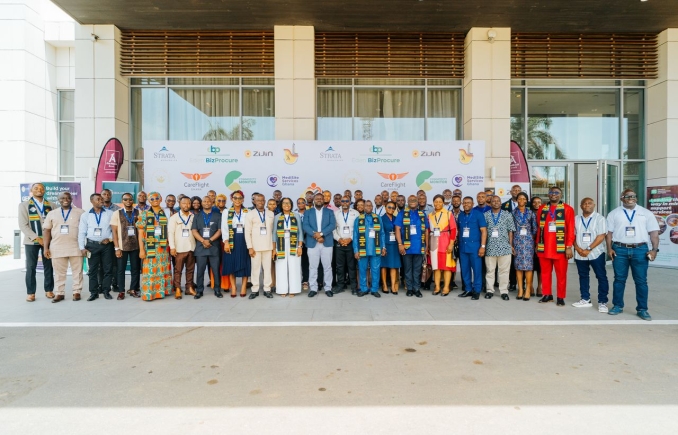
“Education key to preventing workplace accidents” – Chief Inspector of Mines
The Chief Inspector of Mines at the Minerals Commission, Richard Kofi Adjei, has underscored the critical role of education and awareness in preventing workplace accidents, particularly in high-risk sectors such as mining.
Speaking at the maiden edition of the National Conference of the Safety, Health, Environment and Quality Practitioners Association of Ghana (SHEQPA-GH) in Accra, he emphasised the importance of continuous staff training on workplace safety protocols.
“Marking World Day for Safety and Health at Work reminds us that education is key. Safety officers must go beyond compliance and engage staff regularly on the protocols that keep us all safe,” he stated.
He added that workplace safety should not be treated as a one-time campaign but rather a sustained effort, reinforced by leadership, safety practitioners, and workers alike.
While acknowledging that safety is a non-negotiable value in the workplace, he emphasised that financial concerns should not hinder the adoption of artificial intelligence (AI) technologies and digital solutions that protect lives.
“The requisite safety equipment and measures may be expensive, but as safety practitioners, we must bear in mind that health and safety always override cost,” Mr Adjei posited.
Deputy Chief Inspector of Mines, Desmond Boahene, also highlighted the importance of inclusivity in safety planning, particularly in relation to contractors who often operate under high-risk conditions.
“We must ensure that contractors receive the same level of protection and attention as permanent staff. Safety must be universal,” he noted.
He further advocated for a system that rewards and recognises adherence to safety practices, stressing that motivation and accountability go hand in hand in building a strong safety culture.
Continuing the discussion, Akua Berantuo-Armooh, President of SHEQPA-GH, called for effective collaboration among all workplace stakeholders to ensure safer working environments across all sectors.
“Safety practitioners cannot do it alone without the support of general managers and heads of departments. We must all understand our roles and work together to create safer spaces,” she explained.
Focusing on the Ghanaian mining industry, Mrs Armooh acknowledged the sector’s regulatory framework but expressed concern over continued fatalities, which, she noted, point to the need for further improvements.
“We’ve come a long way, but fatalities in the mining sector remain a concern. We must invest in the adoption of relevant technologies to proactively address these risks.”
She also emphasised the need to develop tailor-made safety procedures suited to Ghana’s unique working environments and cultural dynamics.
“Too often, safety standards are copied directly from corporate offices without considering local risks. Developing our own context-specific protocols is the way forward.”
A presentation on standard industry safety practices was also delivered during the conference. Key insights from the conference theme, “Revolutionising Health and Safety: The Role of AI and Digitalisation at Work”, were shared by Ing. Dr Koduah Dapaah, Managing Partner at K+MNJ Consults. He highlighted the importance of using modern safety equipment and fostering teamwork in managing workplace hazards and preventing fatalities.
The inaugural edition of the National Conference of SHEQPA-GH formed part of activities commemorating the World Day for Safety and Health at Work. It brought together a cross-section of industry players and policymakers. Going forward, the event is expected to become an annual gathering of safety professionals, reflecting Ghana’s ongoing commitment to workplace safety through dialogue, innovation, and shared responsibility.
